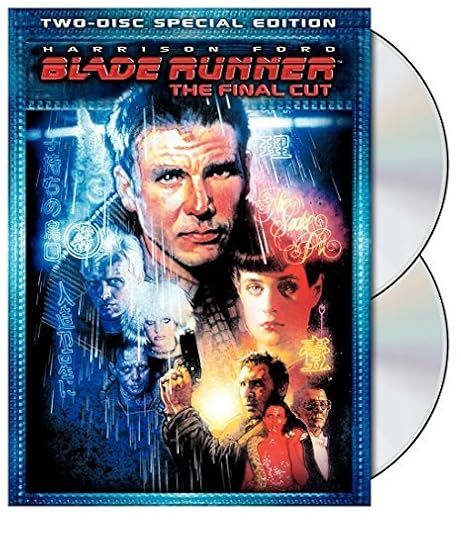Bard Reviews: Blade Runner
Looking at the odds, Blade Runner really shouldn’t have become such an iconic film. While visually dynamic, it features an almost entire cast of morally dubious, unsympathetic characters, including its protagonist. The only two characters who qualify as innocents in the film are Rachel and Sebastion, who both suffer greatly in spite of that fact. The world of Blade Runner is dark, hopeless, and chaotic, where acts of sudden violence appear to be the norm, and the best of humanity has already departed for life off the planet.
Well, no wonder it wasn’t well received at the time.
My first encounter with the film was when I was very young. I recall being greatly disturbed by the viewing. I watched as Harrison Ford, who I knew as Han Solo and Indiana Jones, randomly killing people with complete disregard. Two of them were women, who died horribly. The scenes of Zhora running through sheets of glass after being shot in the back, and Pris shrieking and wildly convulsing in her death throes were worse than any horror movie to my young, impressionable mind. From the creepy apartment of J. F. Sebastian to the malicious smirks of Pris and Roy Batty, all of it made an indelible impression on me. I was haunted by the movie, though I wouldn’t return to it until well into adulthood.
I was in my mid-twenties when I purchased the Director’s Cut of Blade Runner, curious to see how it would impact me. What I experienced would catapult the movie onto the top tier of my favorite film list, where it remains to this day. I fell in love with the isolating story of a lonely man in a city of rain and fog, tracking down quarry not because of the murders they left in their wake, but for the crime of calling themselves human. The edge between hunter and hunted would teeter back and forth, as would the question of mortality and human empathy. The film was far ahead of its time, so naturally was underappreciated on its release. The version I saw as a child had to have been the theatrical cut with the narration, but I don’t remember that part of it. The Director’s cut was the one I became fully acquainted with, viewing it in repeated intervals until recently when I purchased the Final Cut, which I consider slightly superior. And that is the version I watched before seeing the new sequel.
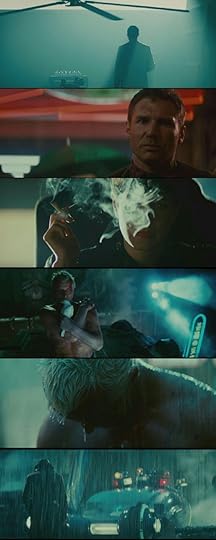
Blade Runner is not a perfect film, but it’s an important one. Unlike many of the science fiction offerings of the time, it wasn’t friendly, it wasn’t optimistic, and it wasn’t heroic by any shot. While many get caught in the endless debate of whether Deckard was a replicant or not, in my mind the main gist of the movie boils down to what makes one human? Are replicants capable of true emotions, and if so, are they then humans by right? Or are they simply automatons performing an imitation of emotive response, lifelike mannequins created to serve in their role like any man-made creation? The test administered to potential replicants is designed to induce an empathetic response. Is empathy the key to humanity, then? And who is that we the viewers are supposed to empathize with?
It’s easy to accept replicants as human beings because we see them as such. They look like us, they behave like us to a certain degree, displaying a range of various emotions: fear, sadness, rage, affection. They even possess a sense of humor. The more the viewer sees them as human, the more it seems wrong to ‘retire’ them with the ruthless pull of a trigger. It’s easy to forget that the crew being hunted had murdered their way to Earth, where they continued their brutal actions without any empathy for any in their way. The best example of their reckless lack of compassion is in their dealing with Sebastian, who is manipulated first by Pris, who takes advantage of his kindness and naivety. He is then cajoled into setting up a meeting with Tyrell at the behest of Roy Batty, who promptly murders him offscreen after brutally killing Tyrell. Sebastian is the only character in the film who treats replicants as equals, but it does nothing to spare him from their complete lack of regard.
Yet Deckard is equally flawed in terms of morality. He is alone when we first meet him, and he remains that way throughout the film. No reason is given for his completely isolated state. He is such a blank slate that it’s almost tempting to buy into the ‘he’s a replicant’ theory. But I’ve always pegged Deckard as human, so I’m sticking to that. It’s obvious he had issues and a troubled past. Not only does he prefer solitude, but he drinks constantly as well, and is prone to melancholy bouts of silence. Maybe he’s been abandoned, left behind while those he loved took to the stars. Maybe he’s holding some terrible grief inside. Regardless, he’s not a happy man. At the start of the film, he’s taken a break from his job. He claims to have quit, but it doesn’t take much to convince him to come back. It’s almost like a joke between him and the captain. One gets the feeling they’ve danced to that tune a few times already. Deckard seems to know he’s good at his job and nothing else. He is a simple man. He doesn’t question much, just goes to work.
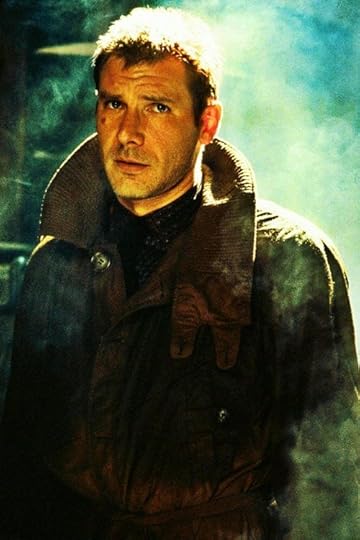 Replicants are like any other machine. They’re either a benefit or a hazard. If they’re a benefit, it’s not my problem.
Replicants are like any other machine. They’re either a benefit or a hazard. If they’re a benefit, it’s not my problem.
But then he meets Rachel. A replicant he almost couldn’t detect, one he questioned for far longer than any other replicant in order to detect what she is. A replicant with implanted memories threaded so deftly that she doesn’t even know she’s not human. He is shaken by the notion, even repulsed when she shows up at his door to argue her existence. His uneasiness is quickly replaced by curiosity, and then outright attraction. This all culminates in the film’s most disturbing scene, where Deckard forces himself on Rachel. Again, here is the empathy test at work, this time on the audience. Is Rachel human, making this action rape? Or is she a synthetic being, no different than any programmed machine? In the end, only the viewer can decide.
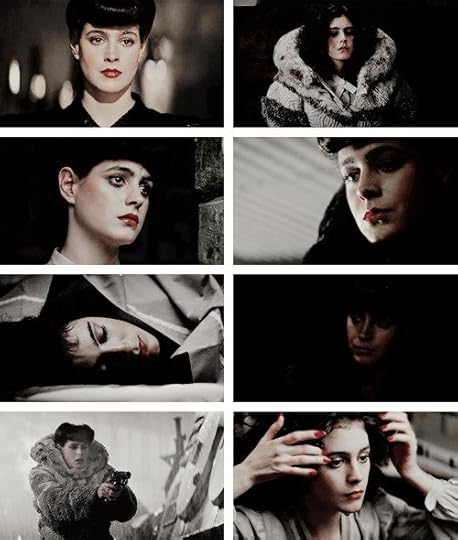 That Voight-Kampf test of yours. Have you ever tried to take that test yourself?
That Voight-Kampf test of yours. Have you ever tried to take that test yourself?
The scene definitely changes the way we feel about Deckard, who now becomes as brutish as the replicants he hunts. He feels no empathy for Rachel, just lust that he insists she reciprocate. It is only after being hunted, then saved by Roy Batty and given the ‘tears in the rain’ soliloquy that Deckard realizes replicants may not be so different from humans as he believed. It is an awakening, one that causes him to in turn develop empathy for Rachel, rushing back to protect her from possible retirement from other hunters.
And empathy is what I believe Blade Runner to ultimately be about. If you can’t feel for another person, can’t put yourself in their shoes, can’t bring yourself to care about how they feel, can you really call yourself human? Or are you a cold, emotionless being that operates in an empathy vacuum, doing as you please with complete disregard or inability to care for any in your way? Fortunately, we get to choose. But the quandary presented in Blade Runner is still potent, still worthy of discussion. And that’s the film’s greatest impact. Yes, it’s a gorgeously shot, stylish attired, masterfully directed film with a perfect accompanying score and soundtrack by Vangelis. But the issues in its center is what places it at the apex of not just the best science fiction films, but the best films of all time. And it will no doubt remain so, unlike tears in the rain.
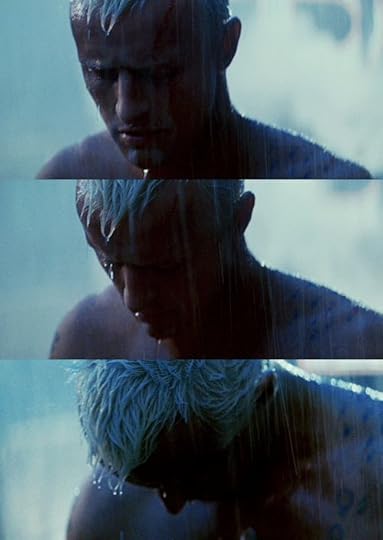 Time…to die.
Time…to die.
Related Product: Blade Runner Final Cut
When Bard Constantine isn’t consumed by pop culture, he’s busy pounding out tales of gritty futures and epic fantasy. Visit him at bardwritesbooks.com

